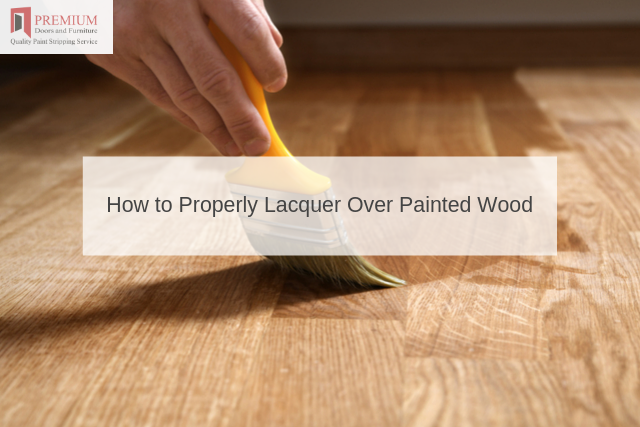 There are times when you may wish to provide a section of wood (such as a door or a window frame) with an extra level of protection and style.
There are times when you may wish to provide a section of wood (such as a door or a window frame) with an extra level of protection and style.
Lacquer can be an excellent option to consider due to the fact that it is waterproof and will help to keep the underlying surface intact. Still, there are a few factors to take into account in order to successfully complete such a project.
Oil or Latex Paint?
It is first critical to point out that lacquer cannot be placed over oil-based paints; it will not adhere properly. Only latex-based paints are suitable for such a project. If oil paint is present, you have two options:
- Strip the paint away to expose the bare wood.
- Prime the oil paint so that it can be painted with a top coat of latex. Lacquer can then be applied.
If you suspect that there might also be varnish present, be sure to purchase the best varnisher for wood. The lacquer can then be applied with ease.
The Finish of the Paint to be Lacquered
Assuming that you are planning to lacquer latex-based paint, determine whether its surface has a sheen (such as glossy or semi-gloss formulations). If this is the case, the surface will need to be lightly scuffed with sandpaper.
The elasticising agents will otherwise cause the subsequent coat of lacquer to adhere unevenly; leading to an alligator-like texture.
The Proper Application Techniques
Use a brush that is specifically designed for lacquer (most of these are equipped with synthetic bristles). Apply the lacquer in even strokes to ensure a uniform coating.
Try not to stop midway, as this will cause lap marks when the surface dries. Most wood items will require only a single coat and the majority of lacquers will be required to dry for at least 24 hours before they can be handled again.
To learn about other unique DIY tips, be sure to speak with a specialist at Premium Door Stripping.



